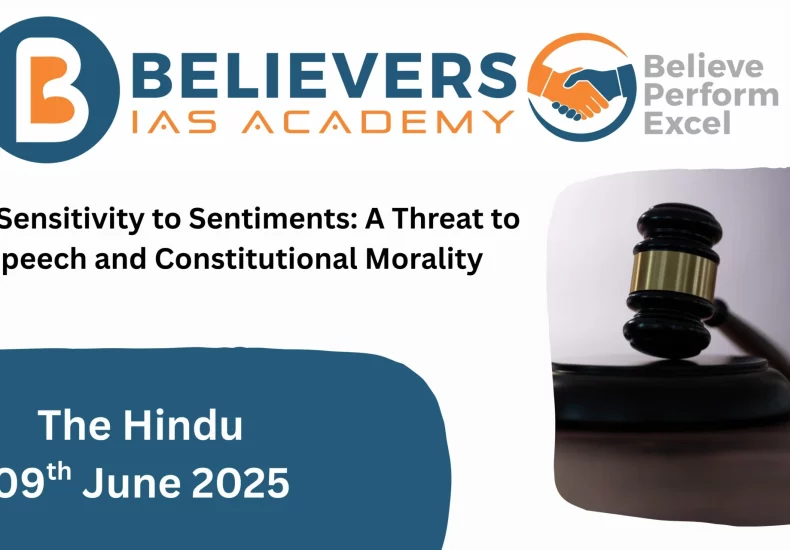
Judicial Sensitivity to Sentiments: A Menace to Free Speech and Constitutional Morality
Judicial Sensitivity to Sentiments: A Menace to Free Speech and Constitutional Morality
Relevance: GS2(Position of Judiciary)
Context
The Indian Structure, by way of Article 19(1)(a), ensures freedom of speech and expression as a cornerstone of democratic citizenship. This freedom shouldn’t be merely a private liberty however an important democratic proper that enables critique, dissent, and discourse.
Nevertheless, latest judicial traits replicate a regarding shift — from defending free speech to managing and moderating it, notably in instances involving sentiment, public outrage, or the so-called dignity of establishments.
Senior Advocate Sanjay Hegde’s latest commentary examines this crucial drift. The judiciary, as soon as the counter-majoritarian protector of basic rights, is now seen yielding to public sentiment and institutional sensitivities, at the price of constitutional freedoms.
Key Points Raised
1. Speech as a Danger, Not a Proper
A number of courts have handled provocative or crucial speech as offensive and worthy of penal scrutiny, even when it doesn’t incite violence or hatred, which is the precise constitutional threshold beneath Article 19(2).
Examples:
-
A 24-year-old man criticized the Prime Minister on social media — FIR not quashed by the Allahabad Excessive Courtroom.
-
Actor Kamal Haasan was requested to apologise for remarks on linguistic identification — although no authorized hurt was established.
-
Podcasters and teachers have confronted judicial scrutiny merely for hurting sentiments or difficult dominant narratives.
2. Encouraging Apologies Undermines Liberty
Courts advising people to apologize for lawful expression shifts focus from legality to recognition. This promotes a “marketplace for offence”, emboldening fringe teams and litigants to weaponize emotion.
3. The Course of Turns into the Punishment
Even when no conviction happens, extended investigations, summons, and FIRs chill free expression. This creates a tradition of concern and self-censorship, particularly amongst activists, artists, and impartial thinkers.
4. Judiciary as a Cultural Arbiter
As an alternative of appearing as guardians of the Structure, some courts are functioning as ethical supervisors — imposing imprecise requirements of civility, modesty, and nationalism. This erodes constitutional confidence and shifts energy from the citizen to establishments.
Conclusion
Sanjay Hegde’s article is not only a critique of remoted judicial choices however a warning a few systemic shift: when the judiciary prioritizes emotion over precept, concord over liberty, and decorum over dissent, it dangers undermining the very constitutional values it’s sworn to guard.
Democracy thrives on disagreement, and free speech consists of the best to offend, problem, and provoke. Courts should not grow to be devices of emotional appeasement or cultural management. Their function is to defend rights, not handle reputations.
Leave a Reply